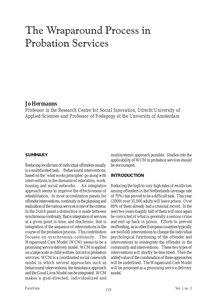From the article: "Whilst the importance of online peer feedback and writing argumentative essays for students in higher education is unquestionable, there is a need for further research into whether and the extent to which female and male students differ with regard to their argumentative feedback, essay writing, and content learning in online settings. The current study used a pre-test, post-test design to explore the extent to which female and male students differ regarding their argumentative feedback quality, essay writing and content learning in an online environment. Participants were 201 BSc biotechnology students who wrote an argumentative essay, engaged in argumentative peer feedback with learning partners in the form of triads and finally revised their original argumentative essay. The findings revealed differences between females and males in terms of the quality of their argumentative feedback. Female students provided higher-quality argumentative feedback than male students. Although all students improved their argumentative essay quality and also knowledge content from pre-test to post-test, these improvements were not significantly different between females and males. Explanations for these findings and recommendations are provided"
MULTIFILE

Reducing recidivism of individual offenders usually is a multifaceted task. Behavioural interventions, based on the ‘what works principles’ go along with interventions in the domains of education, work, housing and social networks. An integrative approach seems to improve the effectiveness of rehabilitation. In most accreditation panels for offender interventions, continuity in the planning and realization of the various services is one of the criteria. In the Dutch panel a distinction is made between synchronous continuity, that is integration of services at a given point in time, and diachronic, that is integration of the sequence of interventions in the course of the probation process. This contribution focuses on synchronous continuity.

The past decades have shown an accelerated development of technology-enhanced or digital education. Although an important and recognized precondition for study success, still little attention has been paid to examining how an affective learning climate can be fostered in online training programs. Besides gaining insight into the dynamics of affective learning itself it is of vital importance to know what predicts trainees’ intention to transfer new knowledge and skills to other contexts. The present study investigated the influence of five affective learner characteristics from the transfer literature (learner readiness, motivation to learn, expected positive outcomes, expected negative outcomes, personal capacity) on trainees’ pre-training transfer intention. Participants were 366 adult students enrolled in an online course in information literacy in a distance learning environment. As information literacy is a generic competence, applicable in various contexts, we developed a novel multicontextual transfer perspective and investigated within one single study the influence of the abovementioned variables on pre-training transfer intention for both the students’ Study and Work contexts. The hypothesized model has been tested using structural equation modeling. The results showed that motivation to learn, expected positive personal outcomes, and learner readiness were the strongest predictors. Results also indicated the benefits of gaining pre-training insight into the specific characteristics of multiple transfer contexts, especially when education in generic competences is involved. Instructional designers might enhance study success by taking affective transfer elements and multicontextuality into account when designing digital education.
MULTIFILE